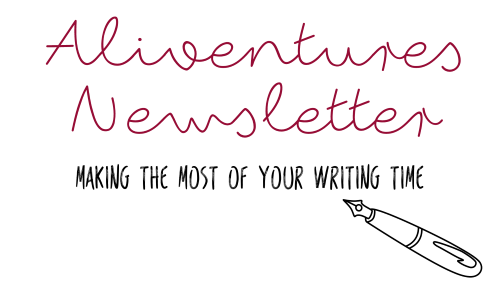Plenty of books on creative writing will include exercises for you to try.
(This isn't an exclusively creative writing thing, of course: books on personal finances often include exercises, as do self-help
books.)
You'll almost certainly get more from any book, class, or course by putting what you're learning into practice.
However ... you may feel that the exercises in creative writing books seem arbitrary or onerous. You certainly don't need to force yourself to tackle them
if you don't want to.
Some writers find that exercises are a great way to:
- Warm up at the start of a writing session
- Keep up a writing habit when they haven't got a specific project to work on
- Practice a particular skill or aspect of writing
- Spark ideas or inspiration, potentially leading to a longer piece of writing
Other writers find it hard to engage with exercises as they may feel a bit artificial or forced.
If writing exercises aren't for you, a good alternative is to tackle a writing prompt. These tend to be less directive: you can often take a prompt and run with it in whatever way suits you.
Both writing exercises and writing prompts are a great way to practice something you want to work on, such as creating a
first-person narrator with a strong and distinctive voice, using lots of dialogue, or being more vividly descriptive in your writing.
There are so many different writing prompts out there to try, but some of my favourite ways to use a prompt are to:
- Use a photo, piece of art, or any kind of image as a starting
point
- Create a piece of writing that incorporates three random nouns (I use the Take Three Nouns generator for these ... or ChatGPT!)
- A starting line of narrative or dialogue
(Writing Magazine runs "first line" competitions annually that use this kind of prompt) and you can find a list of First line writing prompts here.
Unless you're entering a competition, there's no rule on how you should use a writing exercise or writing prompt (even if the person who came up with it has some strict guidelines on how to do it "right"). You can always modify a prompt to suit you, or even just pick an interesting phrase or word from it.
You also don't have to use a prompt to kick off a whole new piece of writing. You might instead turn to writing prompts when you're stuck on a scene in your novel or when you want to return to a half-finished piece. A prompt might help get your ideas flowing again.
I'm putting together a free set of writing
prompts, so keep an eye out for that later this month. You don't need to do anything to get it ... the download link will come automatically to your inbox. :-)
In the meantime, if you feel that writing exercises and prompts might be helpful for you, why not pick one to try this week?
Happy writing,
Ali
P.S. If you missed last week's blog post, you can find it here:
How to Wrap Up a Writing Session Effectively – and Leave Yourself Ready for Next Time

